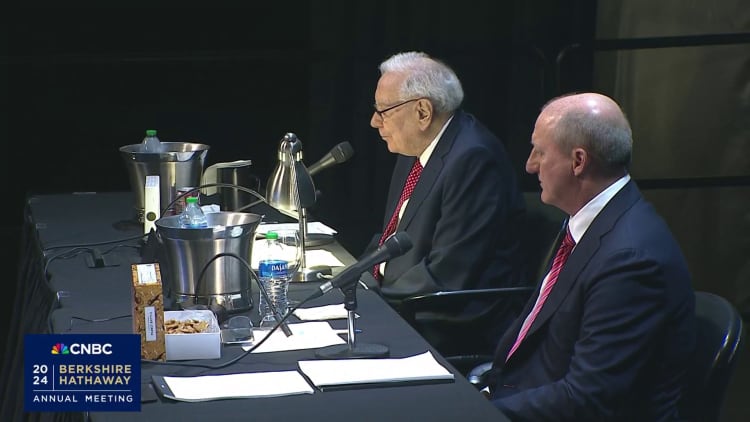Warren Buffett speaks during the Berkshire Hathaway Annual Shareholders Meeting in Omaha, Nebraska on May 4, 2024.
OMAHA, Neb. — Warren Buffett revealed that he dumped Berkshire Hathaway’s entire Paramount stake at a loss.
“I was 100% responsible for the Paramount decision,” Buffett said at Berkshire’s annual shareholder meeting. “It was 100% my decision, and we’ve sold it all and we lost quite a bit of money.”
Berkshire owned 63.3 million shares of Paramount as of the end of 2023, after cutting the position by about a third in the fourth quarter of last year, according to latest filings.
The Omaha-based conglomerate first bought a nonvoting stake in Paramount’s class B shares in the first quarter of 2022. Since then the media company has had a tough ride, experiencing a dividend cut, earnings miss and a CEO exit. The stock declined 44% in 2022 and another 12% in 2023.
Stock chart icon
Just this week, Sony Pictures and private equity firm Apollo Global Management sent a letter to the Paramount board expressing interest in acquiring the company for about $26 billion. The firm has also been having takeover talks with David Ellison’s Skydance Media.
Paramount has struggled in recent years, suffering from declining revenue as more consumers abandon traditional pay-TV, and as its streaming services continue to lose money. The stock is in the red again this year, down nearly 13%.
Buffett said the unfruitful Paramount bet made him think more deeply about what people prioritize in their leisure time. He previously said the streaming industry has too many players seeking viewer dollars, causing a stiff price war.





